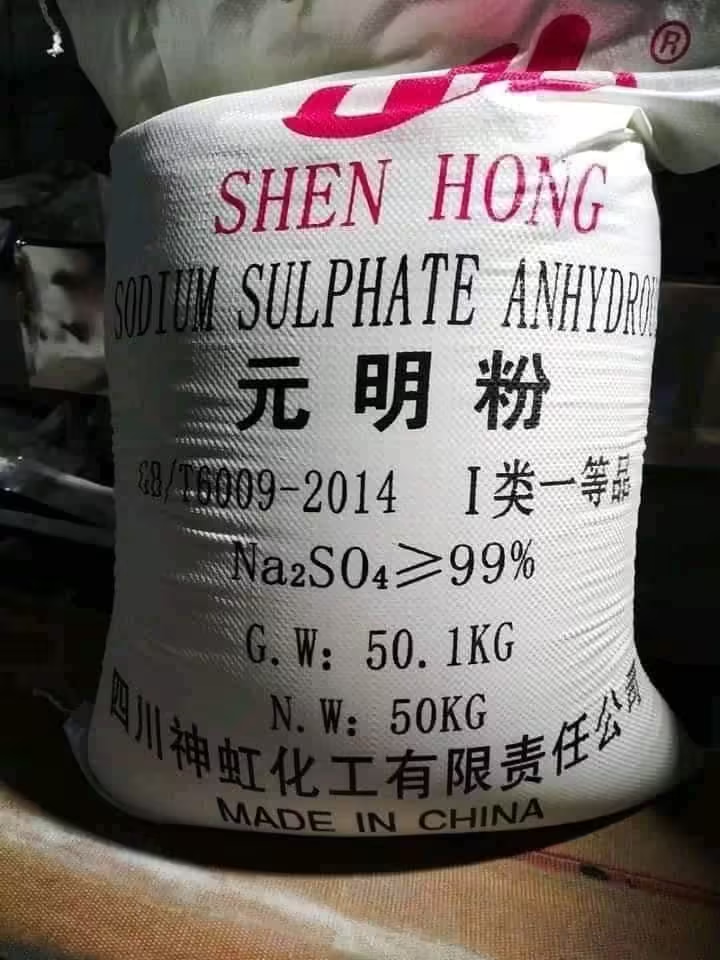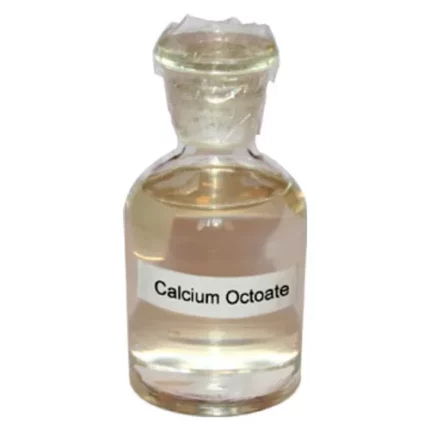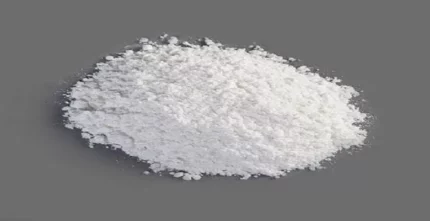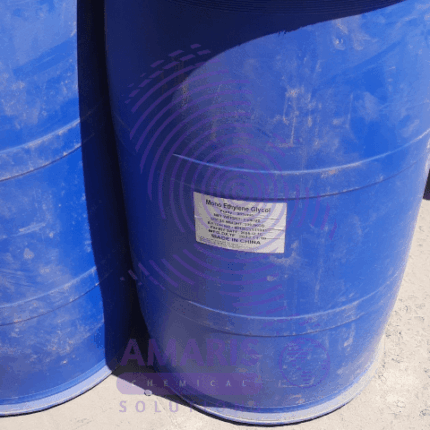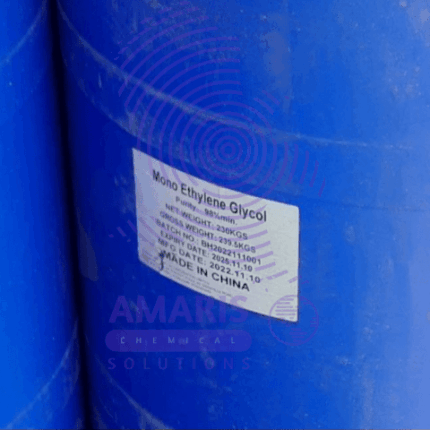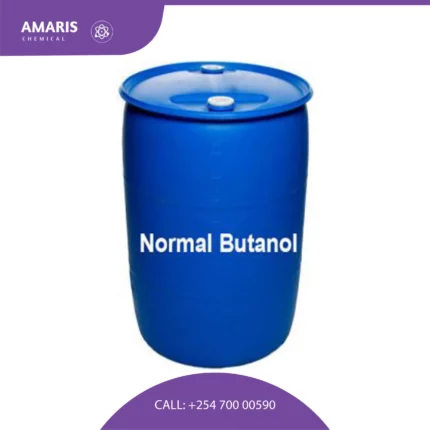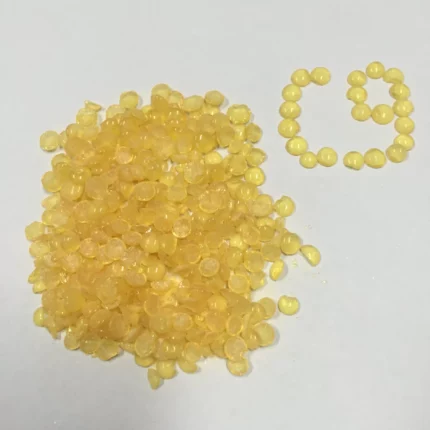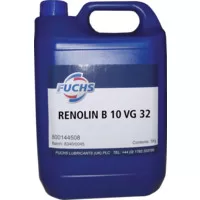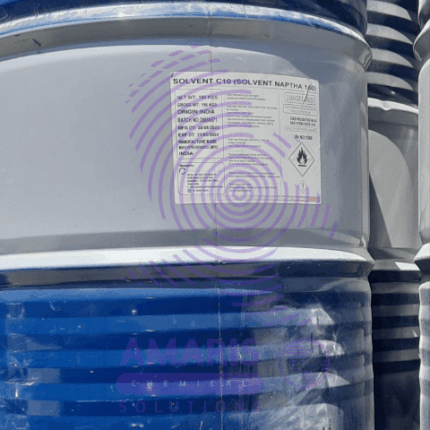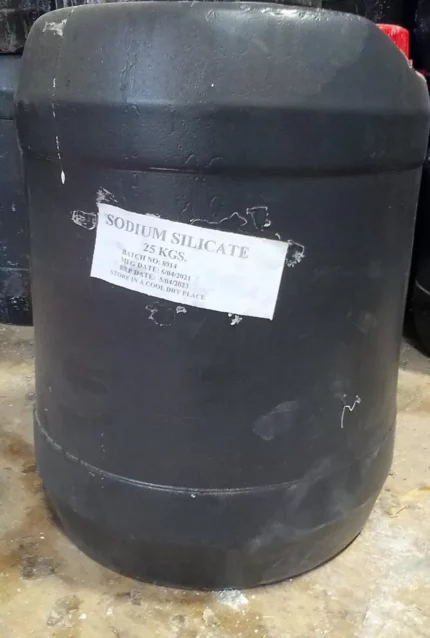
Sodium silicate 20litres
$5,500.00 Original price was: $5,500.00.$5,300.00Current price is: $5,300.00.

Sodium persulfate 25kg
$8,000.00 Original price was: $8,000.00.$7,900.00Current price is: $7,900.00.
Sodium Sulphate anhydrous 25kg
$8,500.00 Original price was: $8,500.00.$8,000.00Current price is: $8,000.00.
Whatsapp Order
Sodium sulfate (chemical formula: Na₂SO₄) is an inorganic compound widely used in various industries. Here’s a detailed overview of sodium sulfate:
Properties
- Molecular Formula: Na₂SO₄
- Molar Mass: 142.04 g/mol
- Appearance: White crystalline solid
- Solubility: Highly soluble in water
- Density: 2.68 g/cm³ (anhydrous), 1.464 g/cm³ (decahydrate)
- Melting Point: 884 °C (anhydrous)
- Boiling Point: Decomposes before boiling (anhydrous)
Types
- Anhydrous Sodium Sulfate: Often referred to as the mineral thenardite.
- Decahydrate Sodium Sulfate: Known as Glauber’s salt (Na₂SO₄·10H₂O).
SKU:
ACS48186CHEM0
Category: OTHERS
Description
Uses of sodium sulphate
- Detergent and Cleaning Agents:
- Used as a filler in powdered detergents.
- Glass Manufacturing:
- Acts as a fining agent to remove small air bubbles from molten glass.
- Textile Industry:
- Used in dyeing and printing textiles.
- Paper Industry:
- Utilized in the kraft process for wood pulping.
- Medicine:
- Known as a laxative in its decahydrate form (Glauber’s salt).
- Chemical Industry:
- Used in the manufacture of various chemicals, including sodium sulfide, sodium silicate, and sodium dichromate.
Additional information
| Weight | 25 kg |
|---|
Related products
Calcium Octoate 10%
Master Cem ls3000
Methyl Isobutyl Ketone (MIBK) 165 kg Drum
Mono Ethylene Glycol (MEG) 230 kg
Monoethylene glycol (MEG) is a colorless, odorless, and slightly viscous liquid with the chemical formula C2H6O2. It is an organic compound primarily used as a raw material in the production of polyester fibers, resins, and films. MEG is also used as a coolant and antifreeze in various industrial applications, as well as in the manufacture of cosmetics, personal care products, and pharmaceuticals.
Normal Butanol 165 kg
Normal butanol, also known as n-butanol or 1-butanol, is a four-carbon alcohol that is commonly used as a solvent, chemical intermediate, and fuel. Its chemical formula is C4H10O, and it is an isomer of other butanols, including isobutanol, sec-butanol, and tert-butanol. The term "normal" in the name refers to the fact that the butyl group (C4H9) is attached to the primary carbon atom (the one with only one other carbon atom attached to it) of the alcohol functional group.
Petroleum Resin C9 Hydrocarbon 25 kg Bag
Petroleum resin C9 hydrocarbon, also known as C9 hydrocarbon resin or simply C9 resin, is a type of thermoplastic resin that is derived from the distillation of petroleum products. It is composed primarily of aliphatic and aromatic hydrocarbons, and is typically produced by the polymerization of C9 fraction of petroleum, which is obtained by the distillation of crude oil.
C9 hydrocarbon resin is a highly versatile material that finds use in a wide range of industrial applications, including adhesives, coatings, printing inks, rubber compounding, and more. It is valued for its excellent solubility, compatibility with other resins, and ability to enhance the properties of other materials, such as adhesion, tack, and flexibility.
In summary, petroleum resin C9 hydrocarbon is a type of polymer derived from petroleum that is widely used in various industries for its unique properties and compatibility with other materials
Renolin B
Solvent Naphtha C10 150 180kg Drum
Solvent naphtha is a term used to describe a group of hydrocarbon solvents that are commonly derived from petroleum. These solvents are typically used in industrial processes such as cleaning, degreasing, and as a diluent in the production of paints, coatings, and adhesives. Solvent naphtha can vary in composition, but it generally refers to a mixture of straight-chain and branched-chain hydrocarbons with boiling points in the range of 130°C to 230°C. The exact composition and properties of solvent naphtha can vary depending on the source of the petroleum from which it is derived and the specific refining processes used to produce it


 Emollients
Emollients Humectants
Humectants UV Filters
UV Filters Surfactants (cosmetic)
Surfactants (cosmetic) Preservatives (cosmetic)
Preservatives (cosmetic) Fragrances and Essential Oils
Fragrances and Essential Oils Antioxidants (cosmetics)
Antioxidants (cosmetics)
 Solvents (lab)
Solvents (lab) Chromatography Chemicals
Chromatography Chemicals Microbiology and Cell Culture Reagents
Microbiology and Cell Culture Reagents Biochemical Reagents
Biochemical Reagents Inorganic and Organic Standards
Inorganic and Organic Standards Spectroscopy Reagents
Spectroscopy Reagents Molecular Biology Reagents
Molecular Biology Reagents
 Precious Metal Extraction Agents
Precious Metal Extraction Agents
 Plasticizers
Plasticizers Polymerization Initiators
Polymerization Initiators Stabilizers
Stabilizers Monomers
Monomers Fillers and Reinforcements
Fillers and Reinforcements Antioxidants (plastics)
Antioxidants (plastics) Colorants (plastic pigments,Dyes)
Colorants (plastic pigments,Dyes)
 Fertilizers
Fertilizers Plant Growth Regulators
Plant Growth Regulators Soil Conditioners
Soil Conditioners Animal Feed Additives
Animal Feed Additives Biostimulants
Biostimulants
 Dough Conditioners
Dough Conditioners Flour Treatments
Flour Treatments Fat Replacers
Fat Replacers Preservatives (baking)
Preservatives (baking)
 Surfactants (cleaning)
Surfactants (cleaning) Builders
Builders Bleaching Agents
Bleaching Agents Enzymes
Enzymes Solvents (cleaning)
Solvents (cleaning) Fragrances
Fragrances Disinfectant
Disinfectant Metal cleaning
Metal cleaning
 Binders/Resins
Binders/Resins Pigments
Pigments Solvents (paint)
Solvents (paint) Additives
Additives Driers
Driers Anti-Corrosion Agents
Anti-Corrosion Agents Specialty Coatings
Specialty Coatings Functional Coatings
Functional Coatings Application-Specific Coatings
Application-Specific Coatings
 Sealants and Adhesives
Sealants and Adhesives
 Biodegradable Surfactants
Biodegradable Surfactants Bio-based Solvents
Bio-based Solvents Renewable Polymers
Renewable Polymers Carbon Capture Chemicals
Carbon Capture Chemicals Wastewater Treatment Chemicals
Wastewater Treatment Chemicals
 Preservatives (food)
Preservatives (food) Flavor Enhancers
Flavor Enhancers Acidulants
Acidulants Sweeteners
Sweeteners Emulsifiers
Emulsifiers Antioxidants (food)
Antioxidants (food) Colorants (food)
Colorants (food) Nutrient Supplements
Nutrient Supplements Nutraceutical Ingredients
Nutraceutical Ingredients
 Fresh Herbs
Fresh Herbs Whole Spices
Whole Spices Ground Spices
Ground Spices Spice Blends
Spice Blends
 Surfactants(oil)
Surfactants(oil)
 Antibiotics
Antibiotics Active Pharmaceutical Ingredients
Active Pharmaceutical Ingredients Excipients
Excipients Vaccine Adjuvants
Vaccine Adjuvants Nutraceutical Ingredients
Nutraceutical Ingredients Solvents (pharmaceutical)
Solvents (pharmaceutical)
 Automotive chemicals
Automotive chemicals Pyrotechnic Chemicals
Pyrotechnic Chemicals


 Vulcanizing Agents
Vulcanizing Agents Accelerators & Retarders
Accelerators & Retarders Antidegradants
Antidegradants Reinforcing Agents
Reinforcing Agents Plasticizers & Softeners
Plasticizers & Softeners Fillers & Extenders
Fillers & Extenders Blowing Agents
Blowing Agents Adhesion Promoters
Adhesion Promoters
